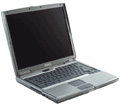A degree in Biosystems Engineering is no longer
just preparation for a career in engineering. color=#005500>Many professional schools
(medical, dental, veterinary, legal, and others)
have realized that the rigors of an engineering
curriculum prepare you for almost any challenge.
These schools love the 'can-do' attitude of
engineering graduates, their ability to solve
problems, and their proven ability to learn.
Students with a B.S. in engineering score
very well on standardized entrance exams, and
have high acceptance rates to professional
schools. If you decide later against going into a
professional school, you still have a very
marketable degree.
m2.jpg' width=200>
Biosystems
Engineering is one of the best routes for this
because of the diverse engineering background it
provides. It combines elements from biological,
environmental, mechanical, civil, electrical,
chemical, and other engineering disciplines.
Biosystems Engineering then adds the
peripheral skills needed to be successful –
intensive design projects, computer and graphics
training, presentation skills, and practical
teamwork.
With this broad foundation, our students have the
background to successfully tackle complex
problems involving people, the environment, and
natural resources -- the same valuable skills
required in a professional program.
The main emphasis of
the
Pre-Professional Concentration is to prepare you for
acceptance to a professional program.
Graduates of Biosystems Engineering and similar
programs have been particularly successful in
admission to medical and law schools, but have also
had success with dental and veterinary programs. If
you have the goal of entering a specific school, your
advisor will work with you to develop a program that
best meets the B.S. curriculum requirements while
giving you the background that the professional
school requires.
width=210>
If you later choose not to
pursue professional school, you have available an
unusually diverse range of job opportunities.
You will be particularly qualified to work at
the interface of technology and living systems –
whether in food and fiber production, environmental
issues, or in a biological context.
width=180>
Because Biosystems Engineering programs vary in
name, incorporate differing amounts of other
engineering disciplines, and lead to diverse career
paths, historical salary statistics are limited.
According to a recent salary survey,
bachelor's degree candidates received starting
offers averaging $52,000 a year and master's
degree candidates, on average, were offered
$57,000.
Earnings for students with a B.S. in Biosystems
Engineering who pursue a subsequent professional
degree are not specifically reported, but are likely to
be substantially higher.
High School Preparation
Successful Biosystems Engineering students
typically have a good high school background in
math, physics, and chemistry. Freshman
admission to the program requires 3 ½ units of
math, including trigonometry and geometry, in
addition to the general admission requirements of
the University.
A strong background in these areas will enable you
to more easily begin your college work. If you
are able to earn advanced placement credit in
some of these areas, you may have additional
options later in your degree program. These could
include taking specialized courses that interest
you, working in a lab, or contributing to a research
project -- providing valuable experience and
improving your employment opportunities.
Our students tend to
be
problem solvers who like to 'figure out' how
things work, and often have good spatial skills.
Other useful traits are good
communication abilities (both written and verbal),
experience with computers, and technical hobbies.
Admission chances are enhanced by high ACT/SAT
scores and a solid high school transcript.



